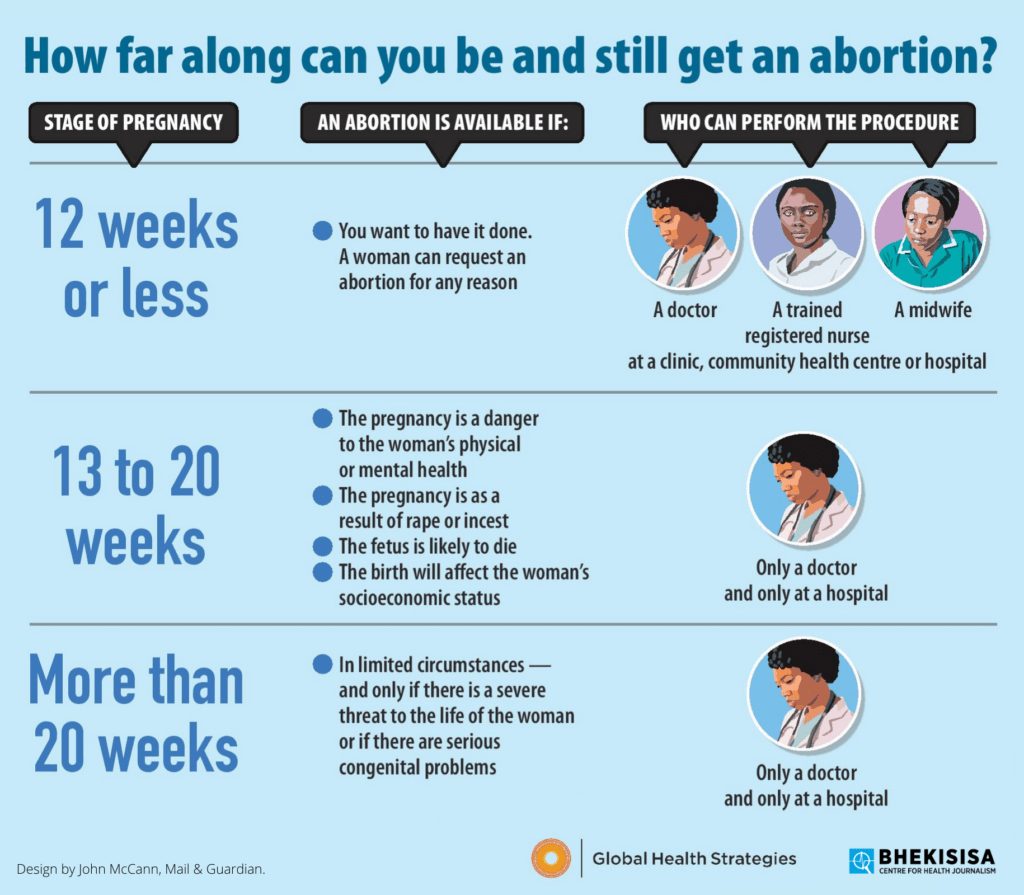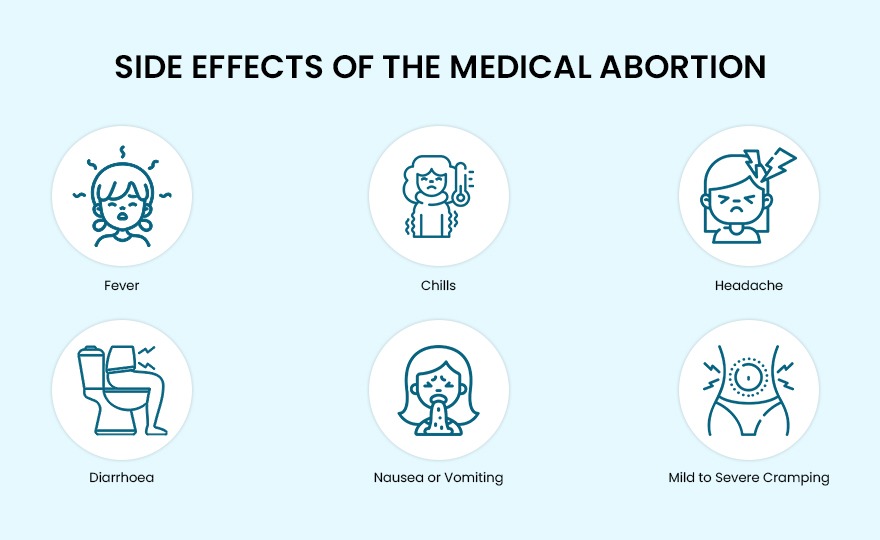The Ultimate Guide To Medical Termination Of Pregnancy

Table of Contents
ToggleOverview:-
The decision to opt for a pregnancy termination procedure or abortion is a personal one and can be influenced by various for instance, Some medical conditions may pose risks to the mother or fetus. Personal challenges may it hard for noe to provide for the child when born Lastly social or economic challenges and one’s life goals all play a role in this decision making.
Therefore it is essential to recognize that each person’s situation is unique and deserving of respect and understanding. This guide will provide an in-depth look into medical pregnancy termination methods, the procedure, what to expect, and essential post-procedure care.
What Is Medical Pregnancy Termination?
Medical pregnancy termination refers to a safe and recommend method of ending a pregnancy using prescribed medications mainly:- Mifepristone and Misoprostol. It is often preferred for early-stage pregnancies (usually within the first trimester), and favored for its non-invasive nature because it sometimes can be self-managed at home under medical supervision.
What Does Safe Abortion Mean?
How Does Medical Termination Work?
Medical termination of pregnancy typically involves using 2 types of abortion tablets mainly Mifepristone and Misoprostol. if used as directed by your healthcare provider, both tablets are safe and effective for terminating a pregnancy with the first weeks typically with the first 10 weeks of gestation.
Mifepristone

The first step involves the administration of Mifepristone, which is a crucial medication in this regimen. Mifepristone functions by blocking the hormone progesterone, which plays an essential role in maintaining the uterine lining and supporting the continuation of pregnancy. Without adequate progesterone levels, the uterus can no longer sustain a developing embryo, leading to its detachment.
Misoprostol

Following this initial step, Misoprostol is administered as part of the second phase. Misoprostol works by inducing uterine contractions that facilitate the expulsion of pregnancy tissue from the uterus. This medication prompts the muscles of the uterus to contract rhythmically, allowing for a natural process similar to what occurs during menstruation.
Safety and Efficacy of Mifepristone and Misoprostol
Medical abortion pills have been medically approved to be efficient in terminating unplanned pregnancies.
Legal rights on pregnancy termination.

Determining the legality of abortion is a complex issue that heavily depends on geographic location, as each country has its own set of laws and regulations governing pregnancy termination. For instance, some countries have enacted comprehensive bans on abortion altogether, effectively prohibiting the procedure under almost all circumstances. In contrast, there are nations where the termination of pregnancy is legal;
however, even within these jurisdictions,these regulations often dictate critical factors such as how far along a person can be in their pregnancy to qualify for an abortion. Some countries may allow procedures only during the first trimester or impose additional restrictions based on personal circumstances such as health risks or instances of rape.
Is Termination the right option?
When faced with an unplanned pregnancy, it’s crucial to understand that you are the only person who can determine whether continuing with the pregnancy or terminating the it would be the right option. Your personal values and life goals are unique, hence making you the best judge of what’s appropriate for your current situation.
When sure about your decision its then advisable to contact a reputable women’s clinic near you to have necessary assessments done and determine if your suitable for the procedure. Post-abortion counselling will be provided as a precautionary measure to determine why you considering abortion and possibly rule out other considerations you might not have thought about .
Edit
- After your health education session, you will go to the exam room for the abortion procedure. The physician will review your medical history with you, and answer any questions or concerns you have.
- Your surgical abortion will be performed, and should take about 5-8 minutes (in the 1st trimester)
- When your procedure is complete, a medical assistant and another provider will take you to the recovery room. There, you will rest for 30-60 minutes.
- In the recovery room, we can give you medications to help with cramping. We will also review your aftercare instructions and medications. A nurse will monitor your heart rate, blood pressure, breathing and oxygenation, temperature, and bleeding, and offer you a snack and a drink. When you’re ready to go home, we will contact your ride for you.
For more information about surgical abortions, please
Potential Risks and How to Mitigate Them
Lorem ipsum dolor sit amet, consectetur adipiscing elit. Ut elit tellus, luctus nec ullamcorper mattis, pulvinar dapibus leo.
Ethical Considerations of Termination of Pregnancy
s://www.sahealth.sa.gov.au/wps/wcm/connect/83a92880452d4a61835cd3005ba75f87/Final+abortion+ethical+considerations+March+2024.pdf?MOD=AJPERES&CACHEID=ROOTWORKSPACE-83a92880452d4a61835cd3005ba75f87-oUMQezM
Edit
There are a range of moral and ethical issues which may arise about unplanned pregnancy
and abortion. At the Pregnancy Advisory Centre we support a woman or pregnant person’s
right to make their own decision about their pregnancy, based on their unique circumstances,
in relation to their own personal values. This information is not intended to tell a pregnant
person what they should think about abortion, it aims to explore some the ideas and dilemmas
that some people face when making a decision about an unplanned pregnancy.
It is always advisable to visit a reputable women’s clinic near you in order
Pro-Choice Vs. Pro-Life: Understanding Both Stances
Lorem ipsum dolor sit amet, consectetur adipiscing elit. Ut elit tellus, luctus nec ullamcorper mattis, pulvinar dapibus leo.
Finding Legal Abortion Providers
Women seeking abortion services need to be aware of pregnancy crisis centers.

Women seeking abortion services, can use searches like “abortion clinic near me,” and locate legal abortion providers closest to them. It is also important to note that availability and services may vary by location, and some abortion clinics may require initial consultations before scheduling the procedure.
Alternatively with the latest developments in women’s healthcare, pregnant women less than 12 weeks into the pregnancy can remotely access pregnancy termination services via Telehealth platform also know as Tele-Abortion services. This option allows women to consult online, and even order abortion medication online without physically visiting an abortion clinic.
Costs and Insurance Coverage for Termination of Pregnancy
Edit
Our staff will file claims for you with health care insurers or other programs such as Medicaid. They also will help your doctor with needed documentation. Medical bills and insurance coverage are often confusing.
If you have questions about your bill, please contact our office.
If you need help understanding your insurance coverage or health plan, start with our insurance company or health benefits manager.
If you do not have health coverage, we will try to help you and your family find financial help or make other arrangements. We need your help with collecting needed information and other requirements to obtain coverage or assistance.
When it comes to your medical Aid insurer covering for the pregnancy termination costs, they might be
Patient Rights and Confidentiality
Lorem ipsum dolor sit amet, consectetur adipiscing elit. Ut elit tellus, luctus nec ullamcorper mattis, pulvinar dapibus leo.
Aftercare and Recovery Following Termination of Pregnancy
After undergoing an abortion, it is common for some women to experience a wide array of strong emotions and notable mood changes in the days and weeks that follow the procedure. These emotional fluctuations can be largely attributed to the sudden and significant change in hormone levels that occurs as the body adjusts to the absence of pregnancy.
Many may feel inclined to seek comfort and understanding from close friends or family members during this vulnerable time. Having trusted individuals who can listen without judgment or offer empathy can make a significant difference in how women process their experiences post-abortion.
Additionally, professional support from counselors or therapists who specialize in reproductive health may also be beneficial for those who are struggling with their emotions after an abortion. These professionals can provide coping strategies on how to manage mood changes effectively and also guidance on how to properly care for yourself in this era while fostering a safe space for women to express their thoughts and feelings openly.
Physical Recovery Tips and Timelines
Recovering from an abortion is a critical and often overlooked aspect that deserves careful consideration. The physical and emotional impact of this procedure can be significant, requiring thoughtful self-care and support to navigate the healing process.
It is essential that individuals who have undergone a pregnancy termination to be provided with the resources, information, and compassion needed to address the unique challenges they may face during this sensitive time. Addressing the recovery phase holistically, with attention to both the bodily and psychological needs, can help ensure a smoother transition and promote long-term well-being.
Legal Considerations for Medical Pregnancy Termination

’Lorem ipsum dolor sit amet, consectetur adipiscing elit. Ut elit tellus, luctus nec ullamcorper mattis, pulvinar dapibus leo.
Therefore women considering a medical termination of pregnancy need to understand
That also includes empahasing women to avoid unsafe methods of abortions that are a danger to their reproductive health
The Process of Medical Pregnancy Termination
What to Expect
The first step in a medical termination process is scheduling a consultation with a qualified healthcare provider, either via a Telehealth platform or in-person at an abortion clinic. During this appointment, an ultrasound or other tests will determine the pregnancy’s gestational age and discuss your health history.
If suitable for abortion medication, your healthcare provider provider will guide you on how to take the medication. The medication will either be self administered in your own privacy at home under the supervision of the doctor or get the whole abortion procedure done at the clinic premises. You will also receive instructions on managing potential side effects and when to return for a follow-up appointment.
Abortion Side-effects
During the termination process, nearly every woman encounters a range of side effects resulting from abortion, and it is important to recognize that these effects can vary significantly from one individual to another. The experiences may include physical symptoms such as cramping, which can range in intensity, as well as bleeding that may last for several days or weeks following the procedure.

Finding An Abortion Provider
Locating a certified abortion provider to assist you further with the termination is very essential when it comes to seeking abortion services. The main reason would not only be that are able to assist women seeking abortion services. By choosing a certified abortion clinic near you, you can have confidence in the quality of care they will receive, reducing the risk of complications and ensuring a positive outcome.
Additionally, certified providers adhere to established medical standards and guidelines, which helps to safeguard the health and well-being of the patient. This includes providing accurate information about the procedure, offering pre- and post-abortion counseling, and ensuring access to follow-up care if needed.
Abortion Aftercare and the Importance of Follow-Up Appointments
Proper aftercare is a crucial part of the abortion process to ensure a smooth recovery and to address any potential concerns. After the procedure, it’s essential to rest, stay hydrated, and monitor your symptoms closely. While mild cramping and light bleeding are normal, any signs of excessive bleeding, severe pain, or fever should be reported to your healthcare provider immediately.
Equally important is attending all follow-up appointments as recommended by your abortion provider. These visits help confirm that the procedure was successful and that there are no lingering complications, providing reassurance and peace of mind during your recovery.
Myths and Facts About Medical Termination of Pregnancy
Medical
Additional Resources and Support
Women who have undergone a medical termination and are having a hard time coping are always advised to seek counselling and support from certified women’s clinics in their area.
Final Thoughts on Medical Methods for Pregnancy Termination
ermination of pregnancy is a complex medical and ethical issue that intersects with personal beliefs, legal systems, and health care. Therefore in order to engage in informed and constructive discussions about abortion, it is essential to understand not only the methods employed in the procedure but also the safety implications associated with them and the legal context that governs access to these services.
Consequently, safe and accessible abortion services remain a critical component of comprehensive reproductive health care on a global scale. Ensuring that individuals have reliable access to these services not only respects their personal rights but also promotes public health by preventing unsafe practices that could arise when legal avenues are unavailable.
s://www.summitcenters.com/medication-abortion-ru486-abortion-pill/
://www.drugs.com/mifepristone.html
ww.drugs.com/misoprostol.html
w.webmd.com/drugs/2/drug-20222-325/mifepristone-oral/mifepristone-oral/details
s://www.uptodate.com/contents/abortion-pregnancy-termination-beyond-the-basics/print#disclaimerContent
